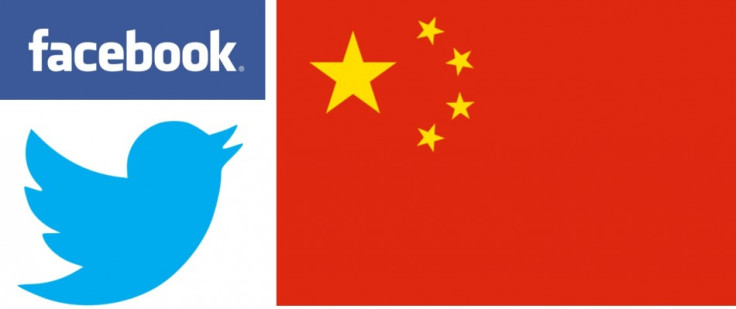China Defends Blocking Facebook, Twitter and Bloomberg

China has continued to be firm on its decision to block some popular western media websites such as Facebook, Twitter, Bloomberg and New York Times, as a diplomat said they violate the country's laws.
In an interview with Sky News, China's ambassador to the UK Liu Xiaoming said the websites would remain blocked in his country because they failed to follow its law and to serve the interests of the people.
"We manage the media according to the law. The important thing is that the media, whether it's foreign or Chinese, they have to fall in the law of China and they have to serve the interests of the people," Liu said.
"What we are concerned about is the healthy content, is whether it's in the interests of improving mutual understanding in China."
He also accused the websites of spreading rumours and bias against China and of harming mutual understanding between the country and the outside world.
Ban on Websites
In October 2012, China blocked access to the English-language and Chinese-language websites of the New York Times in response to an article in both languages describing wealth accumulated by the family of the country's former prime minister, Wen Jiabao.
The country also blocked Bloomberg due to its investigative stories exposing the huge wealth of China's leaders including President Xi Jinping.
Both the New York Times and Bloomberg earlier said they would rather give up access to millions of readers and a valuable news market than censoring their content.
The sites of Wall Street Journal and Thomson Reuters, which had been shut down for more than a month in the country, were restored recently. The Guardian was the latest to suffer a blockade in China, but the website was restored shortly.
Among social media websites, Facebook and Twitter still remain blocked due to their "ability to spread rumours". China heavily censors its domestic Twitter variant Weibo, something which it is unable to do with foreign websites.
China has one of the world's most extensive and sophisticated systems of internet censorship. It employs tens of thousands of people to monitor the internet and delete any content against the Communist Party, top officials and the government. They also write content favourable to the government.
© Copyright IBTimes 2024. All rights reserved.






